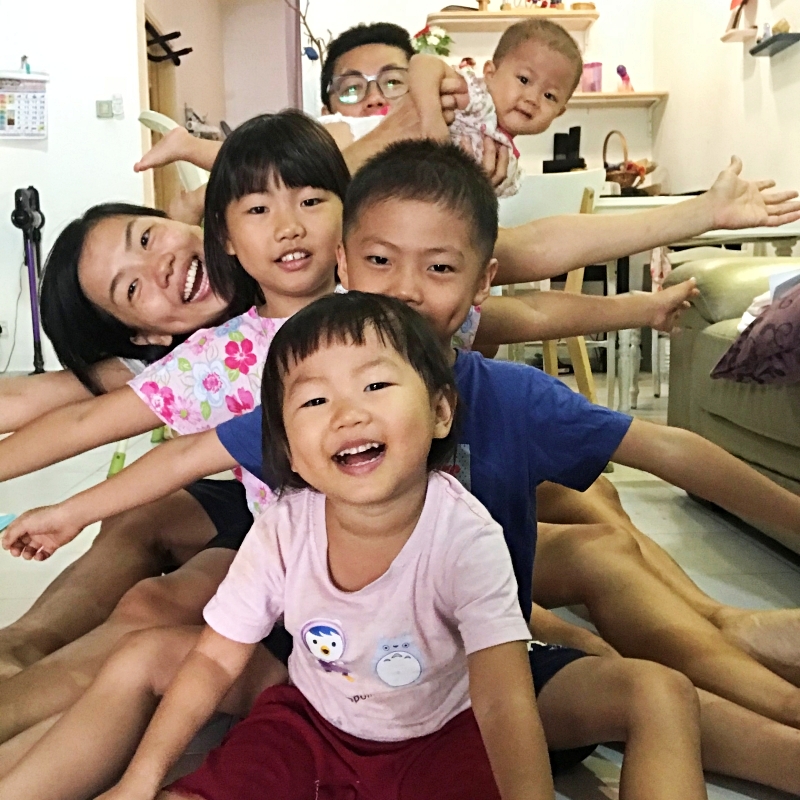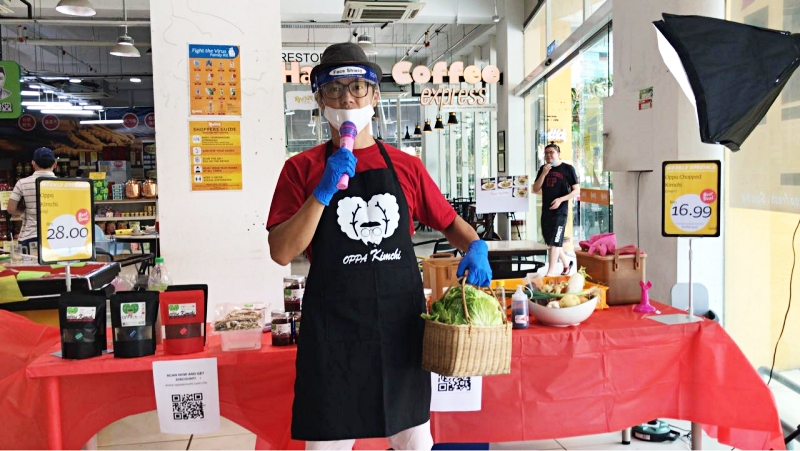- 한국어
- English
- 日本語
- 中文
- العربية
- Español
- Français
- Deutsch
- Pусский
- Tiếng Việt
- Indonesian
By Honorary Reporter Angelica Cabahug from Philippines
Photos = Mo Sang-kyu
Mo Sang-kyu, founder and owner of Oppa Kimchi in Malaysia, begins a typical day with a routine. He starts packing kimchi orders at 8 a.m. for pick up by couriers and later films a video on Korean cooking. He continues packing for late-afternoon deliveries or prepares kimchi ingredients for the next day.
Formerly an interior and architecture professional with no culinary training, Mo started Oppa Kimchi after Malaysia in March last year instituted its first lockdown due to the COVID-19 pandemic. "I had no interior and architecture jobs to generate income at the time, and I needed to feed my family," he said.
Born and raised in Seoul, Mo experienced a long and unexpected journey to Malaysia.
"I was working in Singapore and China. But after my wife got pregnant with (our) second baby, we decided to come back for the birth. Because my wife is Malaysian, she felt supported here from her family. We later decided to settle down here. Now we have four kids," he said.

Mo, his wife and his four children live in Malaysia.
Mo said he initially found it challenging to do business in Malaysia, especially when it came to sales. He had "no connections with the local people, and some cultural barriers make it hard to understand customer or client demand."
Yet Korean culture is well-appreciated in Malaysia, especially after Hallyu became famous, he said, adding, that Malaysians are interested in and want a deeper understanding of Korean culture.
The entrepreneur called his classic kimchi recipe "homemade and using my mother's recipe from more than 50 years ago." He said his mother learned to make kimchi from his grandmother and the family recipe was passed down over many generations.
Boiled anchovy stock with kelp and dried shiitake mushrooms make Mo's concoction unique.
"To be honest, we are very generous as we put nutritious ingredients in our kimchi because it's the kind we want to nourish our family. And we now want to spread the same love to our customers," he said.
For his ingredients, Mo said he uses kelp imported from Korea, and for authenticity, he gets ingredients found in Malaysia that are identical to seasonal and fresh ingredients from Korea.
He said making kimchi in the hot climate of Malaysia is a challenge. "In Korea, we usually make kimchi in fall before winter comes, so the weather is cooling and turning cold," he said. "The kimchi is kept underground and we let it ferment slowly at low temperature. In Malaysia, after making kimchi, we either send it straight to customers or keep it in kimchi refrigerators for slow fermentation."
Kimchi graces almost every dining scene in a Korean drama. For a native Korean like Mo, the Korean food industry in Malaysia has successfully catered to domestic tastes thanks to the surging global popularity of K-dramas and K-pop, kimchi's unique flavor and its health benefits.
"I think there is great potential and opportunity for Korean food. Malaysia is a multicultural country and Korean food and culture are still in the beginning stage. So once people attain a certain level of taste, they will go crazy over Korean food due to its many benefits," he said.
Mo said mukeunji kimchi jjigae (ripened kimchi stew) is his favorite kimchi dish. "It has the same cooking method as kimchi stew, but the kimchi is aged more than six months or so. The kimchi is extremely sour and the texture is so smooth like it melts in your mouth," he said.
Kimchi was not so popular when Mo first came to Malaysia, but nowadays, many kimchi brands have appeared in the country. He said one reason the condiment is seeing rising popularity is studies showing kimchi can fight COVID-19.
As a Korean living abroad, he said he instills in his children the Korean customs he grew up with such as respecting elders and maintaining a sound mind and body. "I'm teaching my kids not to forget aspects of Korean culture like respecting seniors and undergoing strong mental and physical training," he said.
On advice to Koreans who want to live in Malaysia, Mo said, "Be open to understanding and experiencing the culture here. Besides staying near Korean communities, you should travel to different parts of Malaysia, and you'll realize that it's a place that you'll enjoy staying in and exchanging cultural ideas."

Mo Sang-kyu, founder and CEO of Oppa Kimchi in Malaysia, does just about everything needed for his business.
kalhong617@korea.kr
*This article is written by a Korea.net Honorary Reporter. Our group of Honorary Reporters are from all around the world, and they share with Korea.net their love and passion for all things Korean.